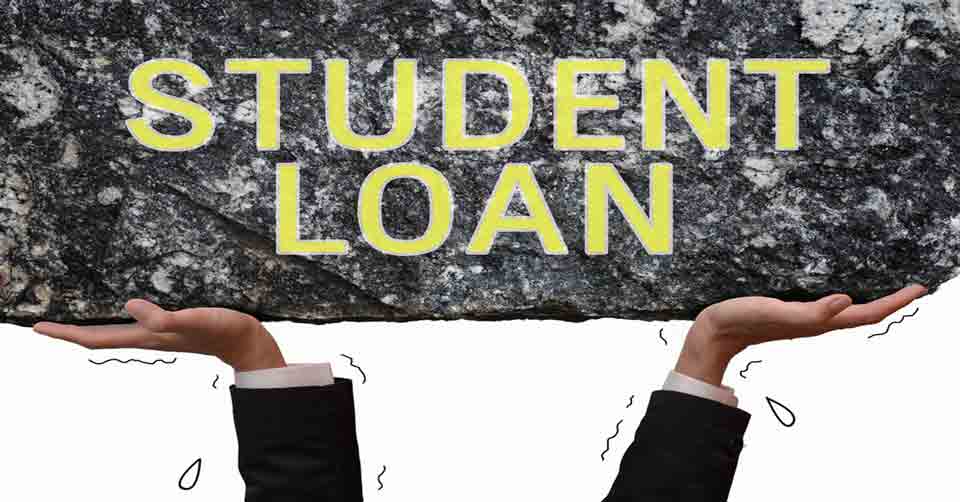Are you drowning in student loan debt? You’re not alone. According to the Federal Reserve, Americans owe over $1.7 trillion in student loan debt. But there is hope. By following these 10 simple tips, you can take control of your student loan debt and start working towards a brighter financial future.
Tip 1: Create a budget
The first step in getting out of student loan debt is creating a budget. By understanding exactly how much money you have coming in and going out each month, you can make a plan to pay off your debt. The Consumer Financial Protection Bureau has a helpful guide for creating a budget. Once you have a budget in place, you can start making extra payments towards your student loans.
Tip 2: Consolidate your loans
Consolidating your student loans can make it easier to manage your debt. By consolidating, you’ll have one monthly payment instead of multiple payments to different lenders. Additionally, consolidation can also lower your interest rate, which can save you money in the long run. The Department of Education has a guide to consolidating your student loans.
Tip 3: Refinance your loans
Refinancing your student loans is another way to lower your interest rate and save money on your monthly payments. By refinancing, you’ll be able to get a new loan with a lower interest rate and use that loan to pay off your current student loans. Keep in mind that you’ll need a good credit score to qualify for refinancing, and it may not be the best option for everyone. The NerdWallet has a guide to refinancing your student loans. It’s important to shop around and compare rates from different lenders before making a decision.
Tip 4: Consider loan forgiveness programs
Loan forgiveness programs can provide relief for those working in certain fields, such as teaching or public service. These programs can forgive a portion or all of your student loan debt if you meet certain criteria. The Department of Education has a list of loan forgiveness programs available. It’s important to research and understand the requirements and qualifications for each program to determine if it’s a viable option for you.
Tip 5: Make extra payments
Making extra payments towards your student loans can help you pay off your debt faster and save money on interest. Even small extra payments can make a big difference over time. Consider setting up automatic payments or making extra payments when you have extra cash on hand. Every little bit counts!
Tip 6: Pay off high-interest loans first
When paying off your student loans, it’s important to focus on the loans with the highest interest rates first. These loans will cost you more in the long run, so it’s best to get them paid off as quickly as possible. Once you’ve paid off the high-interest loans, you can then focus on paying off the loans with lower interest rates.
Tip 7: Seek out scholarships and grants
While scholarships and grants won’t directly help you pay off your student loan debt, they can help you reduce the amount you need to borrow in the first place. Look for scholarships and grants that you may be eligible for and apply to as many as you can. You can search for scholarships and grants through your school’s financial aid office, as well as online resources such as Fastweb and Scholarships.com.
Tip 8: Work with a financial advisor
A financial advisor can help you understand your options for paying off your student loan debt and create a plan that works for you. They can also help you manage your overall finances, which can be especially helpful if you’re struggling to make ends meet. Look for a financial advisor who is familiar with student loan debt and can provide guidance tailored to your situation.
Tip 9: Consider alternative education options
Consider alternative education options that may be more affordable than traditional four-year colleges. Community colleges, trade schools, and online education are all options that can provide a high-quality education at a lower cost. Additionally, some companies now offer tuition reimbursement programs which can help employees pay for education expenses. This is worth looking into before you decide to take out student loans.
Tip 10: Stay informed about changes to student loan laws
Stay informed about changes to student loan laws and policies. The government is constantly working to make changes to the student loan system, and it’s important to be aware of how these changes may affect you. Keep an eye on updates from the Department of Education, as well as other reliable sources such as Federal Student Aid and Consumer Financial Protection Bureau. These updates can provide valuable information on new repayment options, loan forgiveness programs and other resources that can help you pay off your student loan debt.
In conclusion, getting out of student loan debt can seem daunting, but with the right plan and tools, it is possible. By following these 10 simple tips, you can take control of your student loan debt and start working towards a brighter financial future. Remember to stay informed and be proactive about your finances and you will surely be on your way to debt-free life.
This article has been written with the intention of providing you with a general guide to help you with your student loan debt. However, it’s important to remember that each individual’s financial situation is unique and may require a different approach. If you have any doubts or queries, please do not hesitate to consult with a financial advisor or a student loan expert.

